David and the Three Goliath
Although this episode did not have a serious impact on the balance of power, since for the huge British fleet even such losses were far from catastrophic, in my opinion, it fits well with the line of evidence of the assumption, which I have already expressed more than once: Russia in the First World War fought on the wrong side.
Germanic submarines in the Kiel Bay in summer 1914 of the year. The UK was not ready to counter this new threat.
Drawing of the submarine U-9. This submarine, built in 1910 year, was armed with two bow and two stern torpedo tubes.
The Hog heavy armored cruiser armed with two nine-inch, twelve six-inch and fourteen 76-mm guns. .
Same type with "Hog" cruiser "Cressi".
The death of the cruiser "Abukir" and the explosion of the second German torpedo at the side of the "Hoga".
Team "Cress" trying to escape from a sinking ship.
The triumphant return of U-9 to Kiel.
Officers and sailors of the U-9, awarded for the destruction of the three British cruisers Iron Crosses. The second from the left in the first row is the captain of the submarine Otto Weddigen.
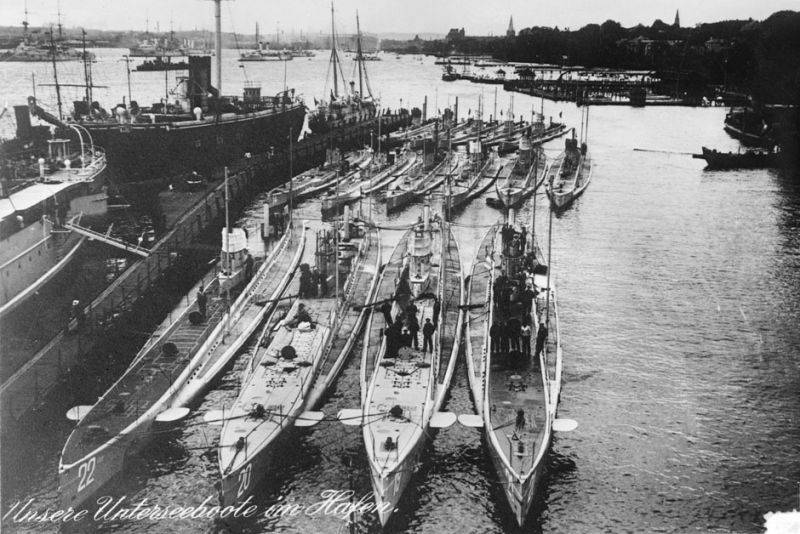
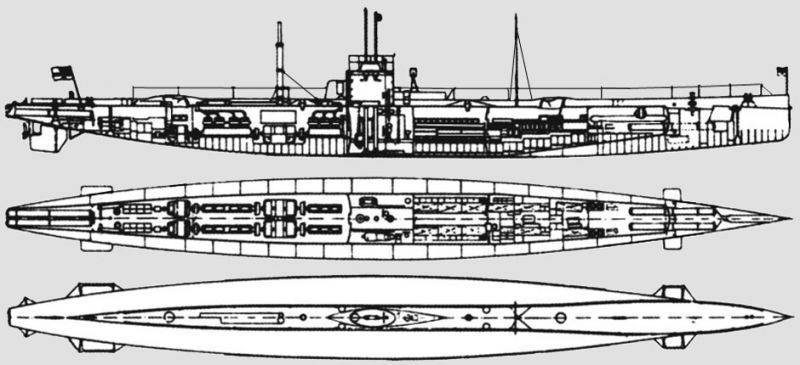
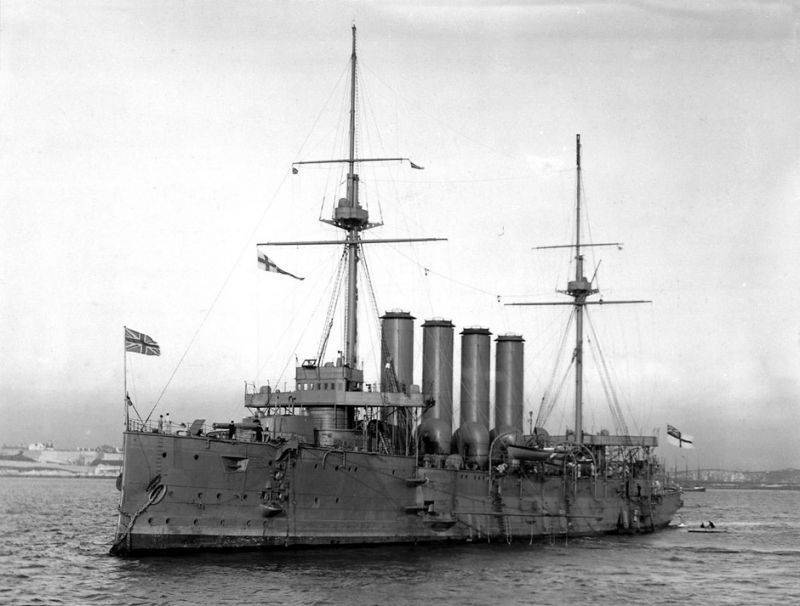
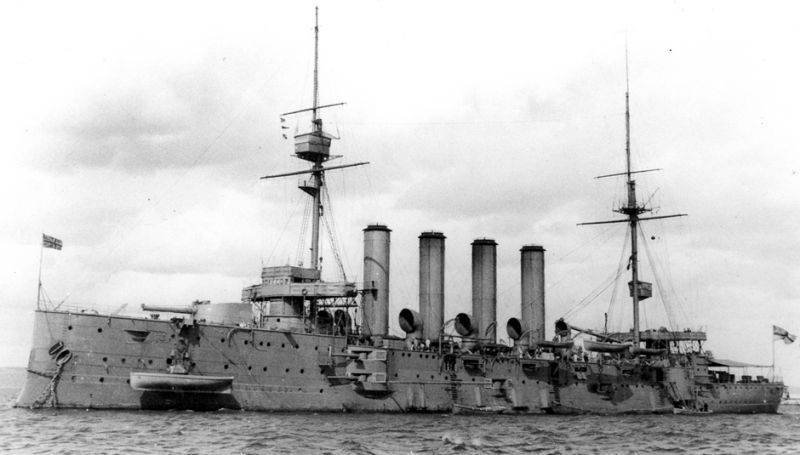
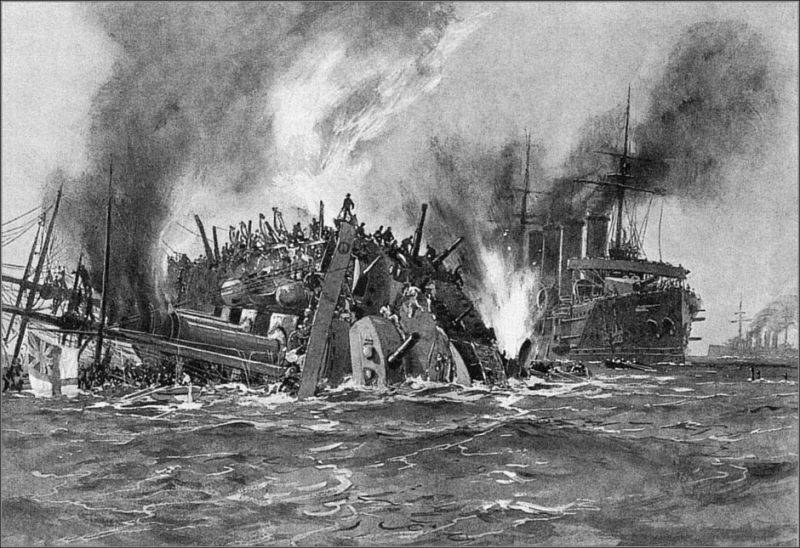
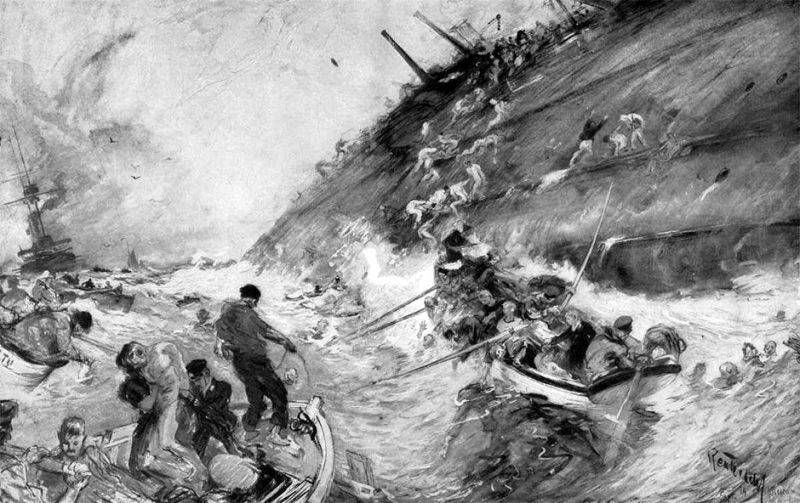
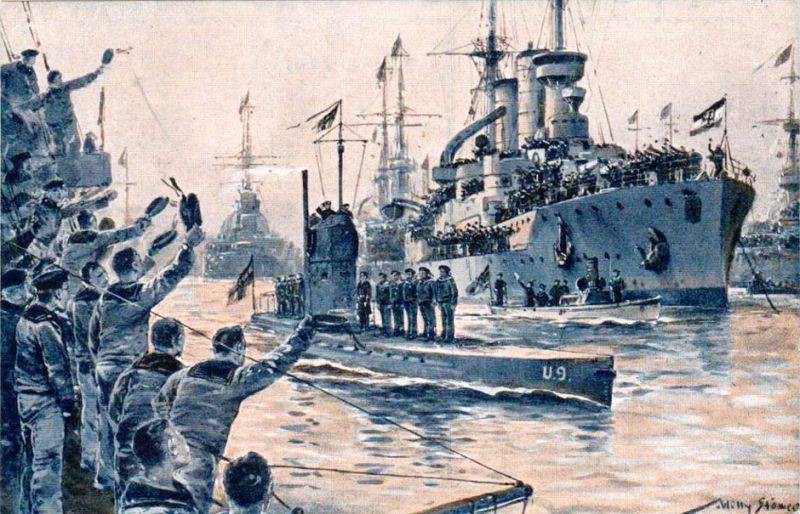
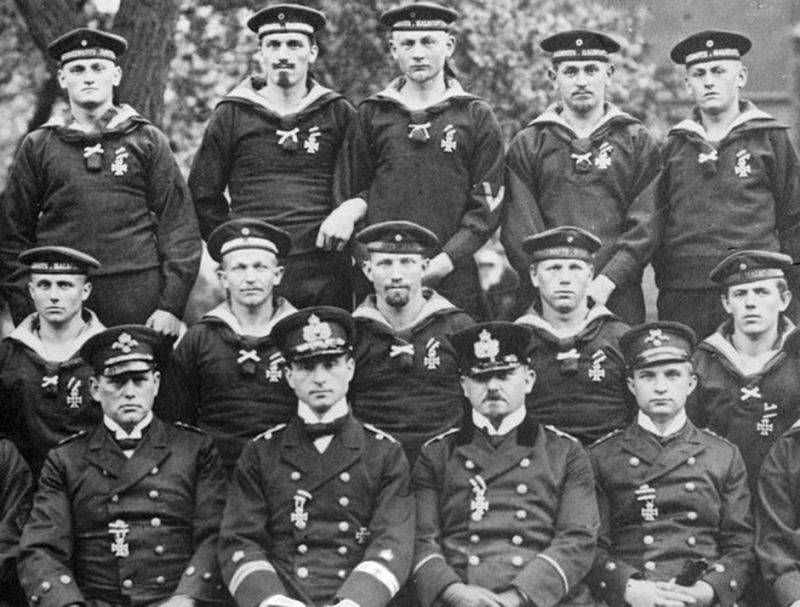
Information